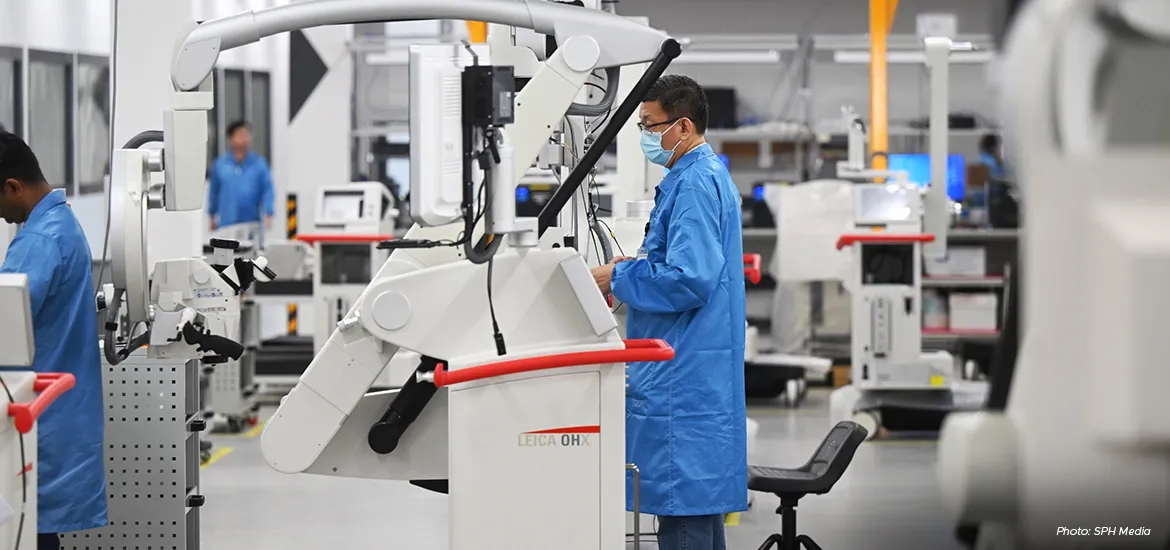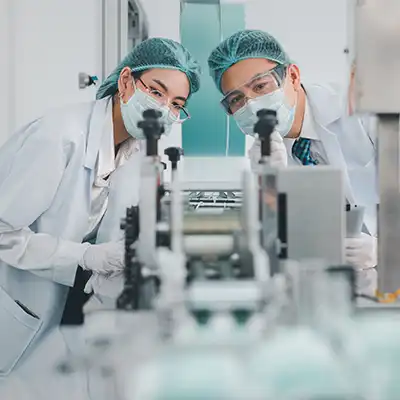These will include roles such as digitalisation and automation experts, process engineers, microbiologists, chemists, and laboratory scientists.
Mr Chen said that the recent contraction is likely a demonstration of how the sector can be volatile due to different products being manufactured rather than an indication of its prospects.
He explained that biopharmaceutical production is typically done in batches, with materials processed in stages that can take days or weeks, depending on the product. To keep costs down and avoid cross-contamination, manufacturing plants often run “campaigns”, producing the same product across multiple batches over several months.
“The manufacturing output will therefore vary, depending on the product type and the length of each campaign”, he said.
Mr Chen also noted that between campaigns, downtime is needed for maintenance and switching to new products, which can also lower output as new items go through testing, validation, and regulatory approval.
He said: “In Singapore, biopharmaceutical facilities are part of the companies’ global manufacturing networks and as such, they would need to regularly review and transfer products to ensure an optimised product mix.”
Recent investments will be a growth driver in Singapore’s biomedical sector, said Mr Chen.
“Some of these plants will need several years before they are fully operational and can contribute to production output levels,” he said.
The Republic drew several high-profile biomedical investments in 2024 from leading pharmaceutical companies. In March, Novartis announced that it will spend US$256 million (S$338 million) to expand its existing manufacturing plant.
AstraZeneca followed in May, with plans for a US$1.5 billion facility slated to open in 2029.
In July, Pfizer opened a US$1 billion manufacturing plant to produce active pharmaceutical ingredients for the firm's cancer, pain, and antibiotics medicines.
Singapore is home to more than 60 manufacturing facilities — including plants of seven of the world’s top 10 biopharmaceutical companies – which make products ranging from active pharmaceutical ingredients to therapeutics, vaccines and cell therapies. These facilities employ more than 9,000 workers, reflecting a 70 per cent increase in the sector’s employment over the past 10 years.
According to EDB, the biomedical sector contributed 2.3 per cent of Singapore’s gross domestic product and produced about $39 billion worth of goods for the global market in 2022.
Biomedical firms told ST that the industry remains on track for growth, with Singapore well-positioned as a healthy environment for the sector, though challenges remain.
Mr Chai Chong Meng, vice president and site head of Swiss biotech company Lonza’s Singapore unit, said that global economic uncertainties and demand fluctuations have impacted output, especially in pharmaceuticals.
He added that supply chain disruptions remain an issue, with material shortages and increasing logistics costs. Higher operational expenses, including labour and energy, are also squeezing margins.
But Mr Chai also noted that Singapore’s biomedical manufacturing sector holds a strong position with a positive outlook globally and within Asia.






